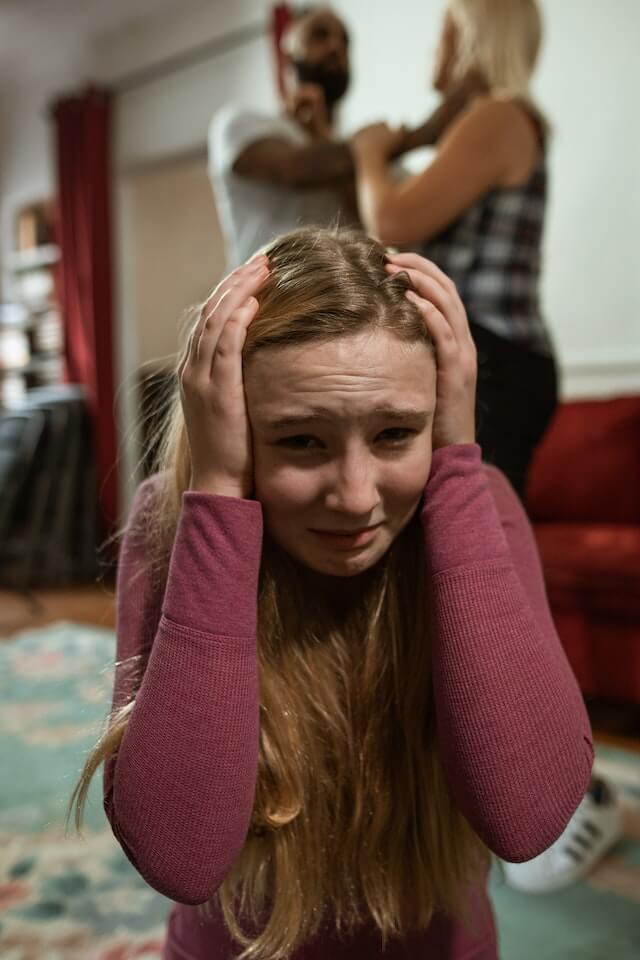For both children and parents, one of the most difficult aspects of the divorce process is determining child custody. Parents’ number one priority should be safeguarding the well-being of children in challenging family situations. And while many parents would do whatever it takes to protect their children, sometimes, there are parents who would deliberately endanger their kids.
If you’re in this situation where your ex-spouse or ex-partner is unfit to care for your child or if they pose a significant risk to your child, know that there are conditions where involuntary termination of parental rights can happen.
From abuse and neglect to abandonment and desertion, these actions can have severe consequences for parents. Let’s talk about the grounds for involuntary termination of parental rights:
Abuse or Neglect of the Child
According to Woody Law Firm, LLC, if you abuse or neglect your child, the court may decide to terminate your parental rights. This is a serious matter that the court takes very seriously. Abuse or neglect of a child can lead to long-term physical and emotional harm, and the court’s priority is always the safety and well-being of the child.
If there is evidence of abuse or neglect, the court will intervene to protect the child from further harm. In some cases, the court may decide that the best course of action is to terminate the parental rights of the abusive or neglectful parent.
This means that the parent will no longer have any legal rights or responsibilities towards the child.
Abandonment or Desertion
Abandonment or desertion is a serious ground for the involuntary termination of parental rights. When a parent willingly and intentionally abandons their child, it can have long-lasting emotional and psychological effects on the child.
The law recognizes the importance of a stable and nurturing environment for children, and when a parent fails to fulfill their responsibilities, the court may step in to protect the child’s best interests.
Abandonment can be physical, where a parent physically leaves the child without providing any support or contact, or emotional, where a parent fails to provide the necessary emotional support and care. In either case, the court will carefully consider the circumstances and evidence before making a decision that is in the best interest of the child.
Substance Abuse or Addiction
When a parent succumbs to substance abuse or addiction, their child is left to grapple with the devastating consequences. It’s a heartbreaking situation where the parent’s focus shifts entirely towards feeding their addiction, neglecting their responsibilities as a caregiver.
The child may be subjected to neglect, physical abuse, or emotional trauma. This unstable environment can have long-lasting effects on the child’s well-being and development.
In cases like these, the court may consider terminating the parent’s rights to protect the child from further harm. The child’s safety and welfare become the priority, and the legal system intervenes to ensure they are placed in a more stable and nurturing environment.
Substance abuse or addiction can have severe repercussions on the parent-child relationship, making it necessary to take steps to protect the child’s best interests.
Mental Illness or Incapacity
Mental illness or incapacity can profoundly impact a parent’s ability to provide a stable and nurturing environment for their child. When a parent is unable to adequately care for their child due to mental health issues, it may be necessary to consider the termination of their parental rights.
In cases where the parent’s mental illness poses a significant risk to the child’s well-being, courts may intervene to protect the child’s best interests. Factors such as the severity of the mental illness, the parent’s ability to seek and comply with treatment, and the impact of the illness on the parent-child relationship are carefully evaluated.
It is crucial to ensure that the child’s safety and well-being are prioritized in these situations, while also providing support and resources to parents struggling with mental illness.
Criminal Behavior or Incarceration

Dealing with criminal behavior or being incarcerated can have a significant impact on a parent’s ability to create a stable and nurturing environment for their child. When a parent engages in criminal activities, it not only puts their own well-being at risk but also jeopardizes the safety and welfare of their child.
Criminal behavior can include domestic violence, drug abuse, or involvement in illegal activities. Incarceration, on the other hand, means that a parent is physically separated from their child for an extended period of time. This separation can disrupt the parent-child bond and hinder the parent’s ability to provide emotional and financial support.
In cases where criminal behavior or incarceration threatens a child’s well-being, the court may consider termination of parental rights to ensure the child’s safety and best interests are protected.
Conclusion
You now have a clear understanding of the grounds for involuntary termination of parental rights. Whether it’s due to abuse or neglect of the child, substance abuse, or addiction, these circumstances can warrant the termination of parental rights. It is crucial to prioritize the well-being and safety of the child above all else. If parents no longer want to play their role, then the court can step in and remove their rights.




